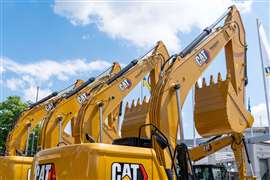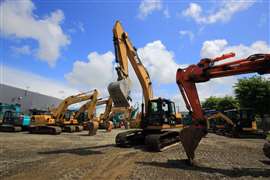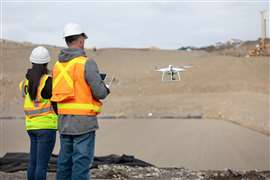ADB loan for Bangladesh
30 October 2008
The Asian Development Bank (ADB) is to loan US$ 87 million in additional funds to improve the basic services and infrastructure in small and medium-sized towns of Bangladesh.
The Second Urban Governance and Infrastructure Improvement (Sector) Project, which will expand access to and delivery of water, sanitation, solid waste management and other urban services in an initial 35 targeted towns, is expected to benefit about 3.8 million people.
More towns will be included as the project is implemented.
The US$ 87 million loan, which will be sourced from the ADB's Special Funds, will be released in phases. Disbursements to each town are linked to governance reform and an improvement in urban services.
German development institutions, Gesellschaft für Technische Zusammenarbeit (GTZ) and Kreditanstalt für Wiederaufbau (KfW), will provide co-financing equivalent to US$ 4.7 million and US$ 36.1 million respectively. The government of Bangladesh will provide an additional US$ 31.7 million. The towns involved in the project will supply the equivalent of US$ 7.3 million, and the beneficiaries an additional US$ 700000.
The project will be carried out from 2009 to 2014 in three phases with the government, ADB, GTZ and KfW jointly reviewing progress at least twice a year.
According to the ADB, the project draws on lessons from the ongoing Urban Governance and Infrastructure Improvement (Sector) Project, which found that improvements to urban infrastructure and services are more effective and lasting when they are tied to governance reforms.
In a statement, Masayuki Tachiiri, an urban economist with ADB's South Asia Department, said, "Good governance is a critical factor in encouraging economic growth and reducing poverty. The performance criteria linked to the fund allocation emphasize citizen participation, urban planning and financial management and this participatory approach makes elected leaders and town officials more accountable to the public and transparent in their use of resources."
Services in urban areas currently fall well short of public requirements. Water, sewerage and solid waste collection are either minimal or non-existent and management is weak with little citizen participation, especially from women and the poor. There is little or no planning for future developments. Bangladesh's urban dwellers are expected to double by 2035, making up 40% of the country's total population, added Mr Tachiiri.
By linking financial help to governance change, ADB will be providing an incentive for town leaders to reform their governance procedures and engage people who were previously excluded from the decision-making process. The amount of funds to be allocated to each town will depend on progress made on reforms.
Each participating town will have to use at least 5% of their allocated funds to improve basic services in slum areas, while gender action plans will be established to ensure women are fully involved in governance and planning process.
The project expects increases in income, employment, and land values in all participating towns by 2015, with 60% of residents in targeted slums to have access to improved services.






